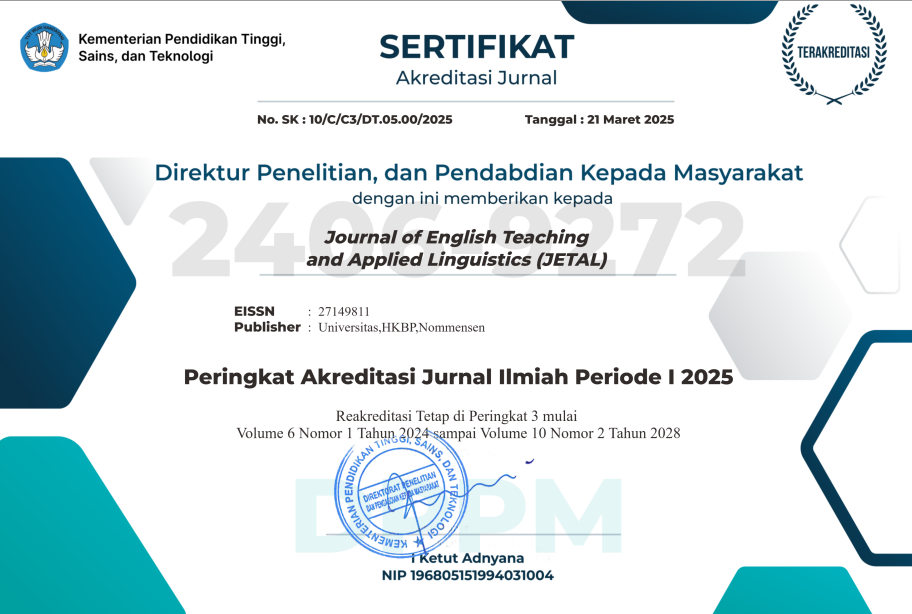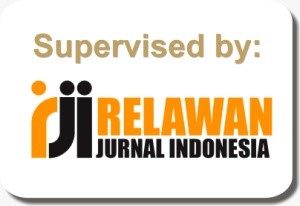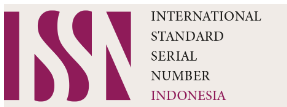An Analysis of Sumbawa University of Technology Nusantara Students’ Motivation to Study Sumbawa Language
Abstract
Sumbawa University of Technology is one of the universities in Indonesia. According to the data from the head of Sumbawa University of Technology students’ admission (Mustaram, personal communication, March 21, 2024), the students of UTS come from 28 provinces in Indonesia. It is assumed that this condition impetuses the students to learn the local language, which is the Sumbawa language. Therefore, the aim of this study is to look at the motivation of Sumbawa University of Technology Nusantara students to study the Sumbawa language. The design of this study was descriptive quantitative research. There were 7 students completed the questionnaire. The data was analyzed in five steps; scoring, adding up, determining the mean, categorizing the mean, and interpreting the mean. There are two motivations for UTS Nusantara students to study the Sumbawa language: intrinsic and extrinsic factors. The intrinsic motivation consists of personal interests and enjoyment of language learning, such as the desire to add linguistic knowledge, interact with Sumbawa people, and avoid discomfort with locals. Extrinsic motivation relates to external rewards or social approval such as the desire to live in Sumbawa, work in Sumbawa, get networking opportunities, and be asked by others to learn the Sumbawa language.
References
Ausubel, D. (1968). Educational Psychology: A Cognitive View. New York: Holt, Rinehart & Winston.
Brown, H. D. (2007). Principles of Language Learning and Teaching. South Korea: Pearson Longman.
Creswell, John W. (2012). Educational research: planning, conducting, evaluating, quantitative and qualitative research (Fourth Edition). United State of America: Pearson Education Inc.
Creswell, J. W. (2014). Research design: qualitative, quantitative, and mixed methods approaches. Sage publications
Deci, E. (1975). Intrinsic motivation. New York: Plenum Press.
Deci, E. L., & Ryan, R. M. (2014). Self-Determination Theory. International Encyclopedia of the Social & Behavioral Sciences (Second Edition), 486-491. https://doi.org/10.1016/B978-0-08-097086-8.26036-4
Defina, D., & Sundari, H. (2016). Motivation in learning Indonesian as a foreign language for Korean students. Language Circle: Journal of Language and Literature, 10(2), 133-140.
Dewi, A. A. S. S. S., & Savitri, P. W. ENVIRONMENT AND THE STUDENTS’MOTIVATION IN STUDYING INDONESIAN AS A FOREIGN LANGUAGE AT GOBALI PROGRAM, THE UNIVERSITY OF UDAYANA-BALI. LINGUAL: Journal of Language and Culture, 16.
Fachraini, S. (2017). AN ANALYSIS OF STUDENTS’MOTIVATION IN STUDYING ENGLISH. Getsempena English Education Journal, 4(1), 47-57.
Gardner, R., & Lambert, W. (1972). Attitudes and motivation in second language learning. Rowley, MA: Newbury House.
Gay, L. R. (2012). Education research: Competencies for analysis and application (10th ed.). Colombus: Pearson Education, Inc.
Ghazvini, S. D., & Khajehpour, M. (2011). Attitudes and motivation in learning English as second language in high school students. Procedia-social and behavioral sciences, 15, 1209-1213.
Khalid, A. (2016). A study of the attitudes and motivational orientations of Pakistani learners toward the learning of English as a second language. SAGE Open, 6(3), 2158244016665887.
Klein, W. (1986). Second language acquisition. Cambridge University Press.
Mahsun. 1999. Variasi Dialektal Bahasa Sumbawa --Kajian Dialektologi Diakronis (Dialect Variation in Sumbawa–A Study of Diachronic Dialectology). Lombok,
University of Mataram. MS
Smith, A., Jones, B., & Lee, C. (2018). Development and validation of the XYZ Questionnaire. Journal of Research Methods, 10(2), 123-140.
Usman, H. (2022). Manajemen: Teori, Praktik, dan Riset Pendidikan Edisi 4. Bumi Aksara.
Walandouw, C. H. (1988). Materi pokok psikologi industri. Karunika Universitas Terbuka.
Widodo, M., Ariyani, F., & Setiyadi, A. B. (2018). Attitude and motivation in learning a local language. Theory and Practice in Language Studies, 8(1), 105-112.
Wigfield, A., & Eccles, J. S. (1999). Expectancy–Value Theory of Achievement Motivation. Contemporary Educational Psychology, 25(1), 68-81. https://doi.org/10.1006/ceps.1999.1015

This work is licensed under a Creative Commons Attribution-ShareAlike 4.0 International License.
Authors retain copyright and grant the journal right of first publication with the work simultaneously licensed under a Creative Commons Attribution-ShareAlike 4.0 International License (CC BY-SA 4.0) that allows others to share the work with an acknowledgment of the work's authorship and initial publication in this journal.
Authors are able to enter into separate, additional contractual arrangements for the non-exclusive distribution of the journal's published version of the work (e.g., post it to an institutional repository or publish it in a book), with an acknowledgment of its initial publication in this journal.
Authors are permitted and encouraged to post their work online (e.g., in institutional repositories or on their website) prior to and during the submission process, as it can lead to productive exchanges, as well as earlier and greater citation of published work (See The Effect of Open Access).






